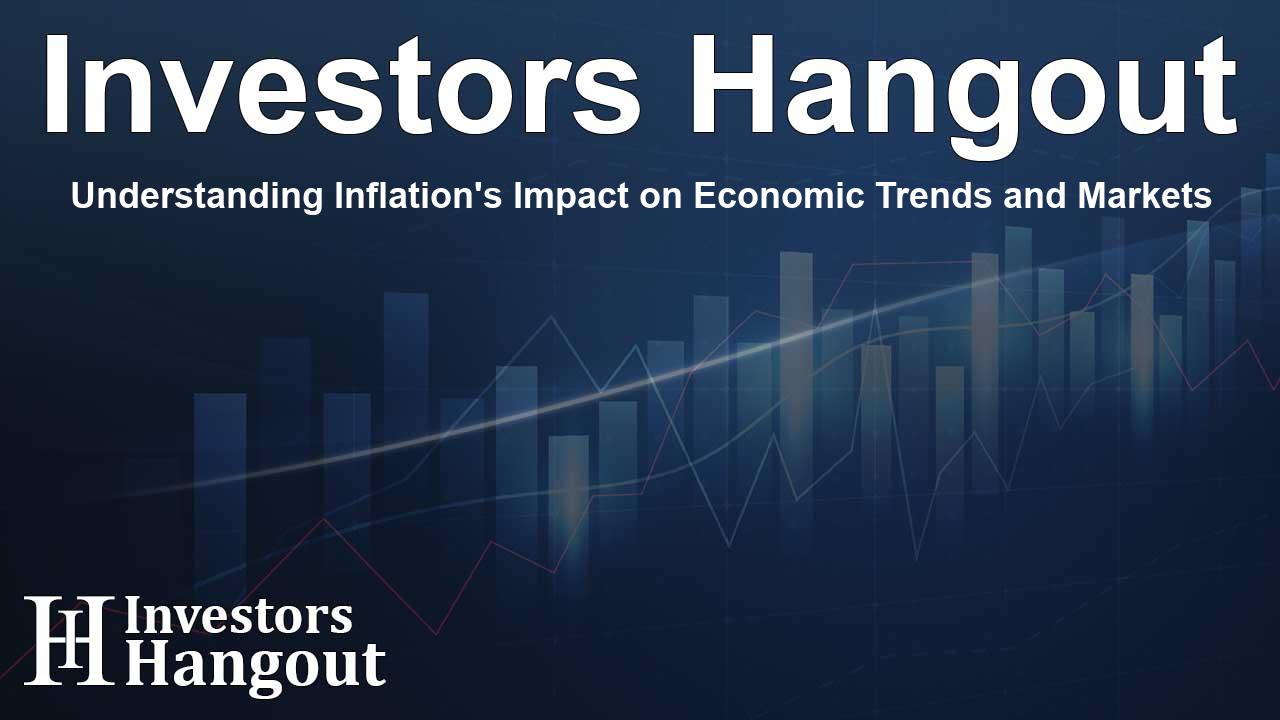Understanding Inflation's Impact on Economic Trends and Markets

Hot Inflation Figures Challenge Federal Reserve Decisions
It seems the latest inflation data in the U.S. has surprised many, coming in hotter than anticipated. Recent reports revealed that headline inflation eased only slightly from 2.5% to 2.4%, while core inflation unexpectedly increased from 3.2% to 3.3%. These figures provide little encouragement for those who favor a softer approach towards interest rates.
In contrast, some investors found a glimmer of hope in the latest jobless claims data. This result sparked a debate among market participants about whether the Federal Reserve should maintain its focus on employment despite rising inflationary pressures.
Interestingly, some officials within the Federal Reserve expressed little concern regarding the uptick in inflation, even before the consequences of prior rate cuts had manifested. Raphael Bostic, a notable voice within the Fed, has suggested that they might consider pausing further rate cuts if inflation continues to gain traction. This shift in focus back towards inflation control signifies the complexities of current economic theories, prioritizing price stability over job growth.
Market Reactions to Economic Data
The market's response to the latest U.S. Consumer Price Index (CPI) data has been a mixture of hesitance and volatility. Initially, stock markets experienced a sell-off, followed by some buying activity, and then another downward shift. Ultimately, the S&P 500 ended down by 0.21%, although this represents a strong outcome given the situation. Higher-than-expected inflation coupled with disappointing jobs data typically spells trouble for economic growth, suggesting the Fed will need to prioritize controlling inflation over robust growth.
Looking ahead, core Producer Price Index (PPI) figures are anticipated, with expectations for a rise in producer prices from 2.4% to 2.7% year-over-year. Should these figures surprise on the upside, they may further challenge the Fed's dovish stance.
Bond Markets and Interest Rates
On the bond front, the U.S. 2-year yield briefly rose above 4% following the CPI data, though this spike was short-lived. The market now suggests a slightly increased likelihood of a 25 basis point cut during the Federal Open Market Committee's upcoming meeting. With traders preparing for more straightforward indicators, there is potential for less dovish sentiment in the coming weeks.
Amidst this backdrop, the U.S. Dollar Index saw a day filled with fluctuations, closing near flat after grappling with the implications of the inflation report. Despite the volatility, dollar bulls possess ample reasoning to challenge the Fed's dovish outlook, especially given the consistent employment data and rising inflation metrics.
Earnings Season Approaches
Amid the economic landscape, the ongoing earnings season is poised to attract investor focus. Major banks, including JPMorgan, Wells Fargo, Citigroup, and Bank of America, are set to release their results soon. Their performance will provide valuable insights into the health of the economic environment and recovery efforts.
While savings and delinquency rates have risen, they have yet to substantially affect overall performance. Should these banks report strong outcomes, it may indicate a resilient economic backdrop despite rising challenges, keeping investor confidence high ahead of the Federal Reserve decisions.
Global Market Influences: China and Middle East Dynamics
Global markets remain vigilant, particularly with China preparing to announce significant fiscal stimulus measures. Speculations suggest a substantial stimulus package, which aims to restore investor confidence amid dwindling enthusiasm.
Additionally, rising tensions in the Middle East have also drawn attention, particularly concerning oil prices. Following concerns that geopolitical instability could disrupt oil supplies, U.S. crude prices jumped notably, signaling potential short-term bullish trends for oil amidst these risks.
Frequently Asked Questions
What does recent inflation data mean for the Federal Reserve?
Recent inflation data suggests that the Federal Reserve may need to adjust its policies, prioritizing inflation control over economic growth to stabilize prices.
How did the stock market react to the latest economic data?
The stock market exhibited mixed reactions, initially selling off and then experiencing minor recoveries, illustrating market hesitations regarding growth prospects.
What is the expectation for upcoming earnings reports?
Investors are keenly awaiting earnings reports from major banks, which are anticipated to give insights into the economic climate and financial sector health.
How do geopolitical tensions influence oil prices?
Geopolitical tensions, particularly in the Middle East, have historically led to fluctuations in oil prices due to concerns over supply disruptions.
What impact might China's stimulus package have on global markets?
A significant fiscal stimulus package from China could enhance investor sentiment, potentially boosting markets by signaling strong governmental support for economic growth.
About The Author
Contact Logan Wright privately here. Or send an email with ATTN: Logan Wright as the subject to contact@investorshangout.com.
About Investors Hangout
Investors Hangout is a leading online stock forum for financial discussion and learning, offering a wide range of free tools and resources. It draws in traders of all levels, who exchange market knowledge, investigate trading tactics, and keep an eye on industry developments in real time. Featuring financial articles, stock message boards, quotes, charts, company profiles, and live news updates. Through cooperative learning and a wealth of informational resources, it helps users from novices creating their first portfolios to experts honing their techniques. Join Investors Hangout today: https://investorshangout.com/
The content of this article is based on factual, publicly available information and does not represent legal, financial, or investment advice. Investors Hangout does not offer financial advice, and the author is not a licensed financial advisor. Consult a qualified advisor before making any financial or investment decisions based on this article. This article should not be considered advice to purchase, sell, or hold any securities or other investments. If any of the material provided here is inaccurate, please contact us for corrections.
